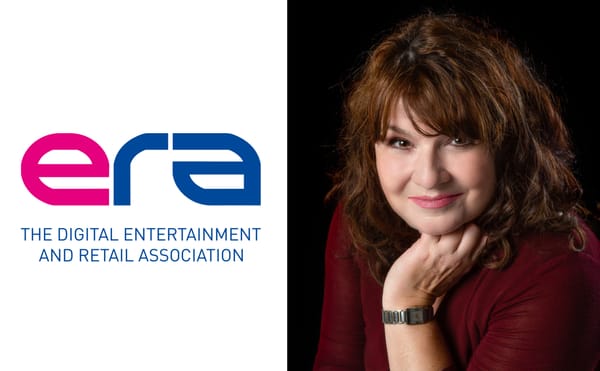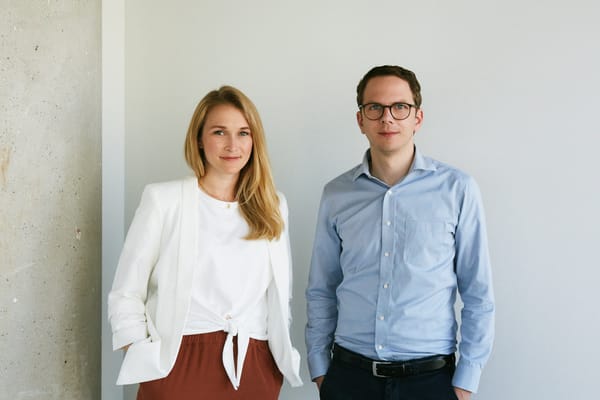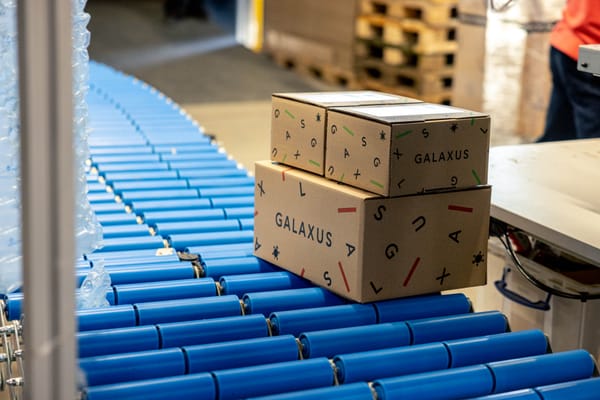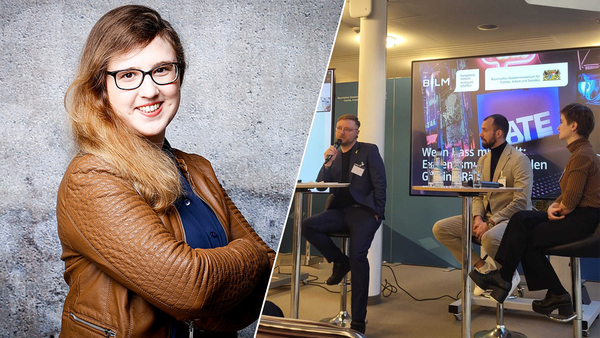"Tea Makes Games" and the Appeal of Experimental Games



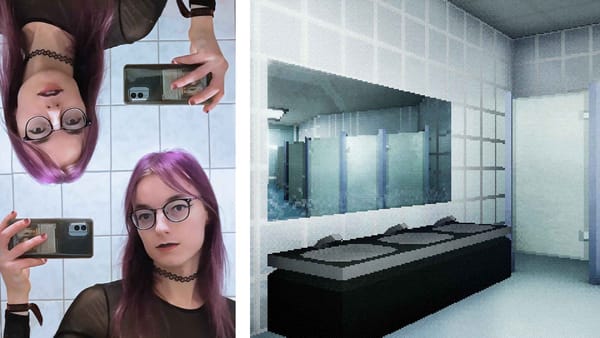
Last year, "tea makes games", a student from Trier, Germany, released her first commercial game, The Elision Effect. GamesMarkt spoke to her about the challenges, inspiration and making experimental games.
Under the pseudonym "tea makes games", Theia Bähr released her first commercial game last year: The Elision Effect, a short, surreal puzzle game. It sold around 2,000 copies with 95% positive user reviews. The game had around 300 wishlists before its release, and these grew to over 3,000. She, "a 20-something trans girl who likes touching computers - and sometimes a game comes out", as she describes herself, talked to GamesMarkt about her beginnings, the success of her first game, the appeal of experimental games and how she manages to combine her studies with game development.
GamesMarkt: You like to make experimental games or design projects. How did this ultimately come about? Was that your thing even before studying in Trier?
Theia: "Prior to my studies, I was fascinated with game modding. My roots are actually in Minecraft pocket edition modding. Later, I got into the Source Engine Modding scene. Many mods for games like Portal 2 or Half-Life 2 try to recreate or expand on the original. I always loved the total conversions - like Robert Yang's 'radiator 1' - which are more akin to standalone games. There was a small scene making walking simulator Source Mods, almost poetry-like games. Nowadays, I’m trying to move away from Source Engine."
GamesMarkt: How do you manage to combine your studies with the development of games?
Theia: "At university, I am split between fields that are better for finding a job (graphic design, programming, etc.) and the more experimental game design. Unfortunately, this combination resulted in me not being specialised in one field, but now I'm more of a media generalist. I pay bills with web development, and meanwhile, university gives me a place to make games that do not have to be commercially viable. Right now, I'm prototyping a weird thing that probably no one would buy - on a touchable digital signage screen pillar I couldn't afford myself."
GamesMarkt: Why are games the medium of your choice?
Theia: "Games are relatively young as a medium. What makes them unique compared to, say, films is the additional layer of interaction. It can make games quite complex. But I also like how you can experiment with the medium in unusual reductive ways, e.g. the game 'blindscape' by Gavin Brown removed visuals entirely. My workflow is quick prototyping: Most of my own games were made for small game jams in less than a week - they're so short that a bundle with 18 of them has a playtime of about one hour. It includes everything from puzzles and short stories to brutalist walking simulators and a small satirical museum - like a box of candies. There seems to be a lot of uncharted territory, and making games always feels like magic. I thrive as the witch who enchants others with weird experiences."
GamesMarkt: You launched your first "commercial" game on Steam without a publisher? Was it a shot in the dark?
Theia: "You could say that. My earlier work couldn't be sold because of Valve's selective policy with Source Engine: 'Our expectation for mods is that by default they are non-commercial in nature [...] [we] very rarely permit mods to be sold' (Distributing Source Engine Games / Mods). Learning other engines opened up that possibility. The Elision Effect was initially planned as a remaster of a previous game jam entry that I could then sell on Steam. The intention wasn't really to make a profit, nor to market it besides a few social media posts, but just to learn the process and 'having done a proper game release' on paper."
GamesMarkt: How happy are you with the launch of The Elision Effect? And has it encouraged you to make more games and possibly continue to make experimental games?
Theia: "Of the games I made, The Elision Effect is one of the "safer" ones for appealing to more players. I'm quite happy about the reception; a few reviews even made me cry from joy! And I loved seeing screenshots, the game through other people's eyes. After a break to recharge, I want to move into weirder territory again. I missed that. For example, I participated in the just-released The Zium Exposition with an interactive exhibit based on Liz England's influential essay 'The Door Problem'. It also made me want to never touch Unity again..."
GamesMarkt: I'd also be interested to know why you find Unity so terrible?
Theia: Besides the recent drama about their hostile behaviour towards developers, such as the run-time fee situation, I never enjoyed working with it - that might also be because I picked it for a VR project... At campus, the programmers tend to prefer Unity, the designers tend to prefer Unreal for its easier visual programming. I also picked Unreal because of Epic's friendlier "first million is yours" policy. In the non-binary spirit, my next game will be in Godot Engine. I don't trust big corporations, I like owning the art I make, and open-source is the future.
GamesMarkt: How do you explain the success of the game?
Theia: "The Elision Effect may appeal to players because it uses an established aesthetic, and wears its inspiration (The Stanley Parable, Superliminal) on its sleeve. Also, I studied the quite popular liminal space trope and leaned into that. Another likely contribution was that I put a bit more effort into the Steam page than most of the 50 daily Steam releases: a short precise trailer that piques people's interests and a cover art with a logo that makes you curious. That's always what made me wishlist games at least."
GamesMarkt: What challenges do you face as a solo dev?
Theia: "My skill set is diverse, but I'm not professional in anything. I touch a lot of software, try a few things and move on to the next. I've worked in Source, Unity, Unreal and Godot. The longest ally on my journey has been Blender, but I wouldn't call myself a professional 3D artist either. I take my time learning everything (e.g. my least favourite part was making the settings menu) and mostly doing small things with it (e.g. learning particle systems to briefly use them in two places). Even then, I never work fully alone and always have friends to help me out, like my best friend Kim, who acted as an excellent debugging duck, or Avery, who made half the music. Maybe I shouldn't stay 'solo'. I can only see myself in a small team though. I like wearing multiple (witch) hats!"
GamesMarkt: What's next for you now? Where do you see yourself after graduation?
Theia: "There aren't concrete plans yet, but I'm currently dreaming about moving in with my partner and (while paying the bills with a half-time tech or design job) making games together on the side. I may try and apply to some cool small indie studios after finishing university too. If that doesn't work out, part of me already flirts with the idea of starting a studio with my best friend. For now, I'll continue my Masters Degree and work on a few more portfolio pieces."
Never miss anything from the German, Swiss and Austrian games industry again: subscribe for free to our Daily newsletter and get all news straight to your inbox.


